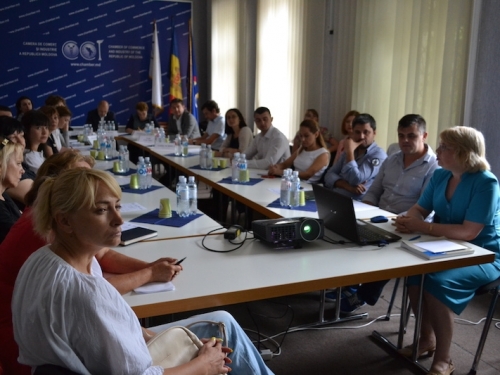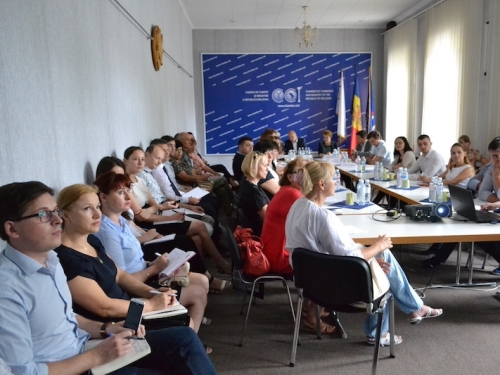On 14th of July European Business Association from Moldova in partnership with Chamber of Commerce and Industry have organized the common meeting of the committee on industry, this time being concentrated on the textile sector and existing problems in the context of DCFTA implementation and commercialization on the EU market.
The subjects discussed during the meeting were Certification of textile products and their promotion on the European market, provision of the Pan Euro Med Convention in the domain of textiles and their statute as an authorized economic agent.
Representatives of Customs Service of Republic of Moldova have reported on provisions of Regional Convention Concerning preferential pan-euro-mediterranean rules of origin and what are their benefits concerning the attraction of investments in the industrial sector and raw material processing.
“Pan-Euro-Med Convention” contains rules of origin of goods, that allows the economic operators to import the raw material through the states that signed the Convention, and after the processing part to be able to export it without customs duties in any member country.” mentioned Galina Scripca, Chief of Origin of Goods Department from Customs Service.
Sergiu Curcubet, chief of Simplified Procedures Department from Customs Service mentioned that obtaining the statute of Authorized Economic Agent (AEO) allows the agents to benefit from simplified customs procedures, underlining that the statute of AEO is attested through the upmentioned types of certificates. Among the benefits of this statute is the reduced number of checks, priority treatment at inspections; facilitating the access at the simplified customs procedures; reducing the number of dates that need to be included in the summary declarations, a special line for crossing the border on a priority basis, etc.
Ina Milcova, representative of Ministry of Economy, underlined the importance of developing the own brands by the enterprises from the textile sector and gradually dropping the lohn production. In this way, the added value created for the country and, respectively, the incomes of the companies will significantly grow, mentioned Ina Milcova. Economic operators from Transnistrean region, present at the meeting, were interested in the trade regime after 1st of January 2016, when the application of the Free Trade Agreement with EU will start on the entire territory of the country.
Other issues mentioned by the economic operators were referring to unfair competition, VAT recovery procedures etc. being agreed the possibility to discuss these issues with responsible public institutions at one of the next meetings.
The sectorial committees in industry, agriculture and services have been financed by the Chamber of Industry in partnership with European Business Association, with the support of the project “The Deep and Comprehensive Free Trade Agreement (DCFTA) – informing and consolidating the capacities of economic agents”, financed by the Swedish Government through International Finance Corporation (IFC).
At the meeting participated 30 companies from the both banks of the river Nistru.


